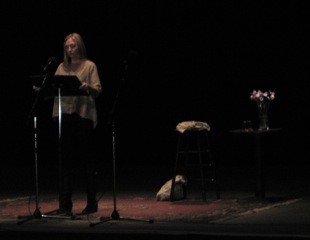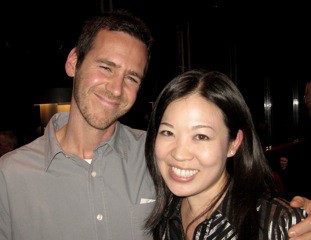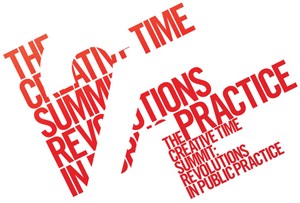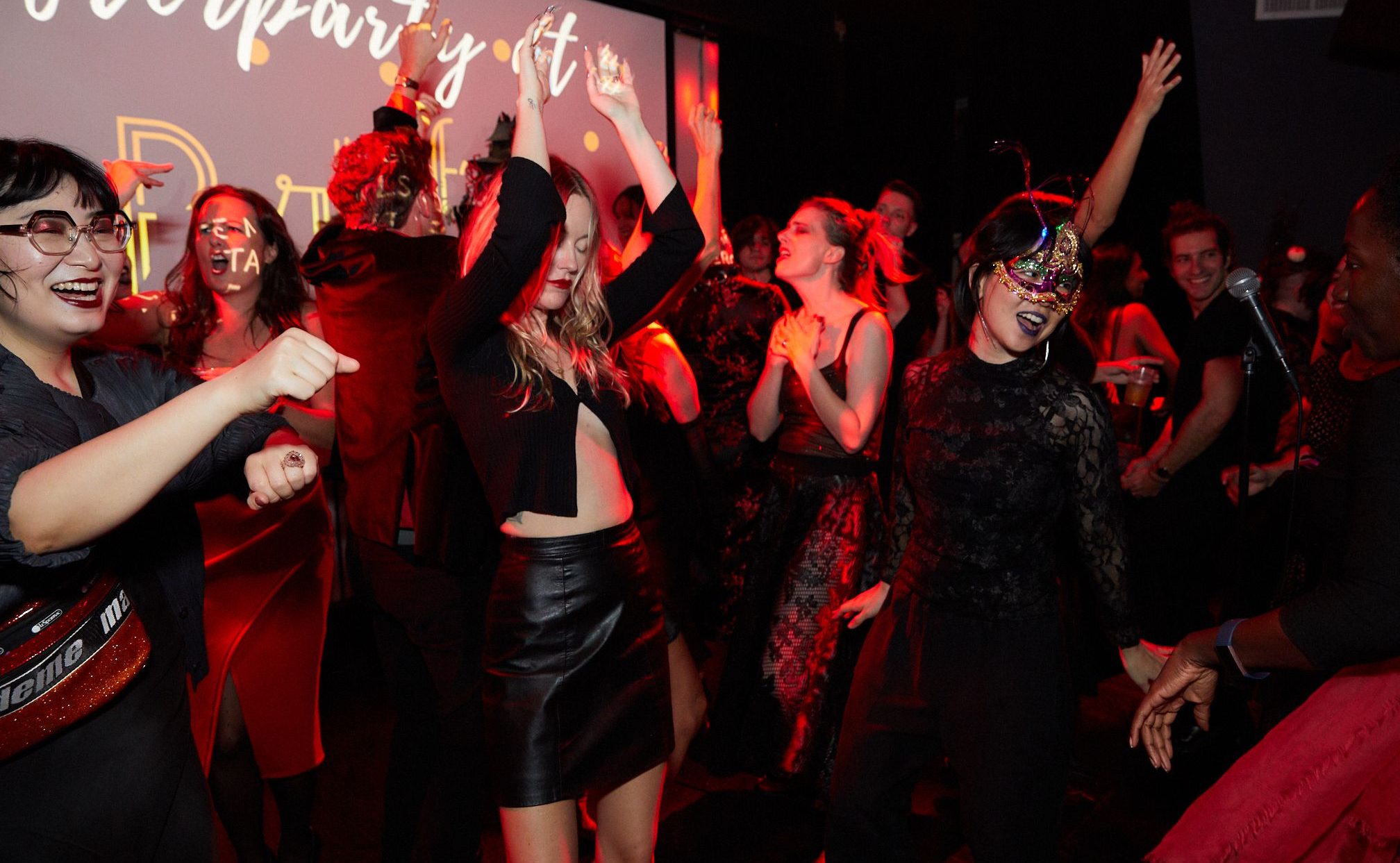news
Symphony Space Does BASS

1. Best American Short Stories series editor Heidi Pitlor, Richard Russo, & Houghton Mifflin’s publicity manager Summer Smith 2. Actress Hope Davis, during the soundcheck. Davis read Jennifer Egan’s story “Safari.”


The first of the Selected Shorts season series, an evening celebrating The Best American Short Stories 2010 edited by Richard Russo, was last night. The good people at Symphony Space were gracious enough to give us the royal treatment, and I was let in an hour before show time for the sound check — early enough to catch actress Hope Davis reading parts of Jennifer Egan’s “Safari,” which was included in the anthology.
Backstage in the greenroom (yes, even authors get greenrooms for events as big as Selected Shorts), host Isaiah Sheffer chatted with actors Davis and Roberts, Russo, series editor Heidi Pitlor, and publicist Summer Smith. There, I learned the actors’ secrets: Davis was sick and had to dope up on cold medicine in order not to cough during the performance and Roberts had to look up the word “valetudinarian” (the title of Joshua Ferris ‘s story that he would read on stage) thirty minutes before he left for the show.
1. Davis, with host Isaiah Sheffer (in his new fall suit!), and actor Tony Roberts, who read Joshua Ferris’s “Valetudinarian.” 2. Russo, talking writer stuff with the babelike Ferris.


“This year’s is a very strong collection,” Sheffer said, “and I don’t say that every year.” Russo asked Pitlor if there were any differences between this year’s collection and past years’, suggesting that perhaps he had chosen more unknown/emerging writers than usual. “Nope, it’s about the same,” she said. Russo, a reader of the series since its inception in 1978, admitted later that the only difference was that this year he loved all twenty of the stories.
Pitlor personally selected Russo for the job, wanting to pick someone who was both critically and commercially successful. Apparently she used to be an editor and is enjoying the other side of the coin. Picking stories for this collection is akin to being Santa Claus, she said — everyone’s happy when they’re told that they have been selected.
How old is Ferris, the group wondered, marveling at the emotional maturity and range displayed in his writing. When he came into the room, they decided to ask him. “Oh, I am old,” he said. “I just don’t look it. I had a friend that used to say I was a teenager once — for about six weeks when I was seven.”
1. Fans Jason & Jessica, who came here to see Ferris but, after listening to “Safari,” are now also fans of Egan. 2. Employee of Sheffer and poet Michelle DuPre, along with singer-actress Stephanie Baldwin. DuPre says this was her first time at a Symphony Space event as an employee, and that it was nice to see all her hard work come to fruition


The event began at seven with an introduction by Russo. From about a thousand stories, Pitlor forwarded 250 to him. It was easy for him to cut these down to 50, but cutting down to twenty was hard — like “literary water boarding.” In the end, it came down to the difference between loving and admiring a story. You can explain what you admire, but love — you can’t articulate or analyze love. When he was truly in doubt, he trusted his jealousy. All of the stories in this collection made Russo sick with envy. As for the Egan story — for Russo the clincher was “the ending, it was the ending!”
Davis read Egan’s story in a performance so subtly nuanced that it made me freak out a little (I have a major adversity to public displays of emotion, and for a few moments I was in danger of crying). Roberts then read Ferris’s story, and his performance had even Ferris himself laughing.
The evening ended with Russo and Ferris conversing about writing, and writing “Valetudinarian” in particular. Ferris described his writing process as a series of traumas, and that each story was the result of hours of hard work and numerous revisions. He’d spent about three months on “Valetudinarian,” working for about six to eight hours a day, and early drafts — according to his wife — felt like a David Lynch movie. Russo asked Ferris how he so convincingly portrayed the life of an elderly man, and Ferris said that his in-laws, although not like the characters in the story, gave him some material to steal from, but mostly he was able to do it because his strong suit as a writer is imagination, not memory.
The evening concluded shortly before ten o’clock, and this was when the audience’s age could really be felt (this certainly wasn’t a Tao Lin reading). “It’s so late!” a woman complained on her way out the door. “Oh, but it was worth it,” said her friend.
–Julia Jackson is working on her MFA in fiction at Brooklyn College, and is a regular contributor for Electric Dish.









